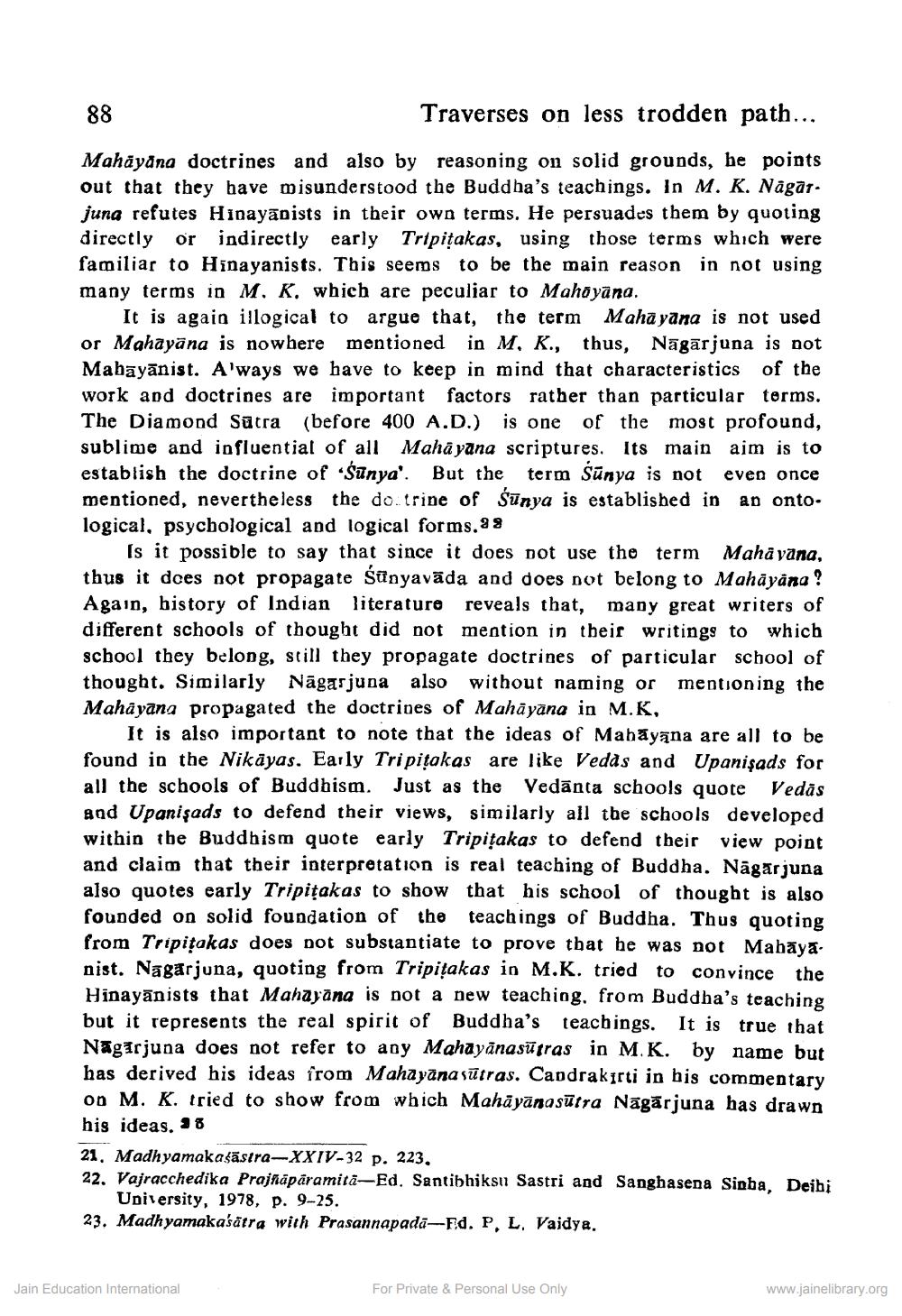________________
88
Traverses on less trodden path...
Mahāyāna doctrines and also by reasoning on solid grounds, he points out that they have misunderstood the Buddha's teachings. In M. K. Nāgat. jung refutes Hinayapists in their own terms. He persuades them by quoting directly or indirectly early Tripitakas, using those terms which were familiar to Hinayanists. This seems to be the main reason in not using many terms in M. K, which are peculiar to Mahāyāna.
It is again illogical to argue that, the term Maha yāna is not used or Mahayāna is nowhere mentioned in M, K., thus, Nāgārjuna is not Mabāyānist. Always we have to keep in mind that characteristics of the work and doctrines are important factors rather than particular terms. The Diamond Sutra (before 400 A.D.) is one of the most profound, sublime and influential of all Maha yana scriptures. Its main aim is to establish the doctrine of "Śtnya'. But the term Sünya is not even once mentioned, nevertheless the do.trine of Śünya is established in ap ontological, psychological and logical forms. 88
is it possible to say that since it does not use the term Maha yana, thus it does not propagate Sünyavāda and does not belong to Mahāyana ? Again, history of Indian literature reveals that many great writers of different schools of thought did not mention in their writings to which school they belong, still they propagate doctrines of particular school of thought. Similarly Nāgarjuna also without naming or mentioning the Mahayana propagated the doctrines of Mahāyana in M.K
It is also important to note that the ideas of Mahayana are all to be found in the Nikāyas. Early Tripitakas are like Vedas and Upanişads for all the schools of Buddhism. Just as the Vedānta schools quote Vedās and Upanişads to defend their views, similarly all the schools developed within the Buddhism quote early Tripitakas to defend their view point and claim that their interpretation is real teaching of Buddha. Nagarjuna also quotes early Tripitakas to show that his school of thought is also founded on solid foundation of the teachings of Buddha. Thus quoting from Tripitakas does not substantiate to prove that he was not Mabāya. nist. Nagarjuna, quoting from Tripitakas in M.K. tried to convince the Hinayānists that Mahayana is not a new teaching, from Buddha's teaching but it represents the real spirit of Buddha's teachings. It is true that Nagarjuna does not refer to any Mahayānasūtras in M.K. by name but has derived his ideas from Mahayanasūtras. Capdrakirti in his commentary on M. K. tried to show from which Mahāyānasūtra Nāgārjuna has drawn his ideas. 38 21. Madhyamakaśāstra-XXIV-32 p. 223. 22. Vajracchedika Prajñāpäramita-Ed, Santibhiksu Sastri and Sanghasena Sinba, Deibi
University, 1978, p. 9-25. 23. Madhyamaka'sātra with Prasannapada-Fd. P. L. Vaidya.
Jain Education International
For Private & Personal Use Only
www.jainelibrary.org




